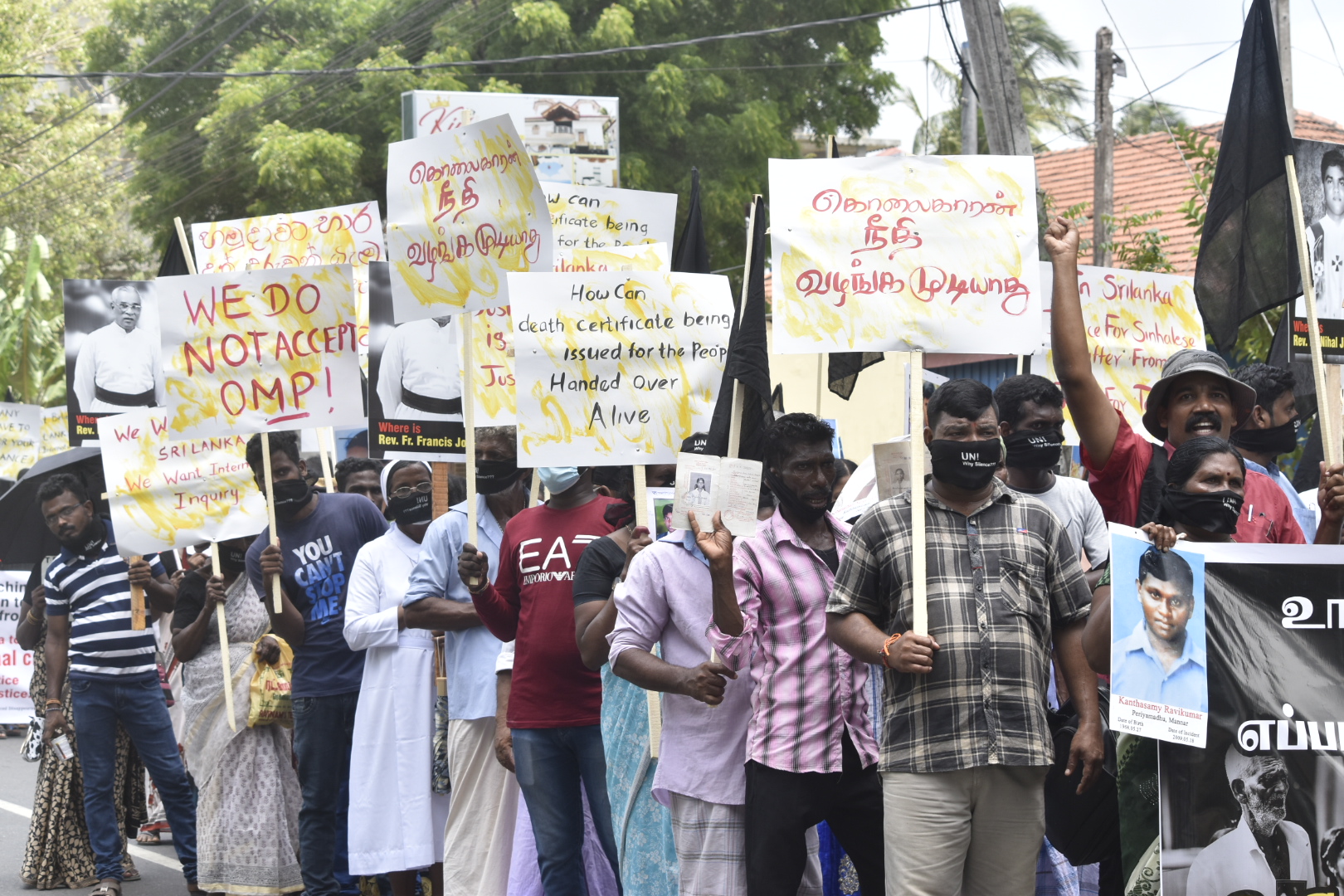
The Human Rights Watch (HRW) has warned that the Sri Lankan government’s proposed law to create a commission to investigate wartime abuses replicates previous failed attempts, ignores the needs of victims, and falls far short of meeting Sri Lanka’s international legal obligations, adding that authorities continue to silence and repress victims and their communities during this process.
“A credible truth and justice process is desperately needed in Sri Lanka, where wartime abuses resulted in tens of thousands of deaths and enforced disappearances,” said Meenakshi Ganguly, deputy Asia director at HRW.
“However, the government’s continuing repression of victim communities and its protection of alleged perpetrators shows a lack of will to deliver justice, ensuring that this commission will fare no better than previous ones,” she added.
The human rights body argues that instead of providing truth, justice, and redress, the proposed law is designed to deflect international pressure over the lack of accountability for atrocity crimes and to persuade the United Nations Human Rights Council to end its scrutiny of Sri Lanka.
The bill states that the new commission would produce a “truthful record” of violations committed during the war, make recommendations on reparations, and propose measures to prevent a recurrence. However, HRW cautions that Sri Lankan governments in the past have blocked investigations, stalled trials, and silenced victims, in violation of international legal obligations.
“Since the 1990s, the government has created at least 10 similar commissions, five of which have concluded reports. Victims say they have “commission fatigue” and see no use in testifying again, risking re-traumatisation and possible threats from the security forces with no expectation of justice and redress,” HRW stated.
The current government headed by President Ranil Wickremasinghe, like its predecessors, has a record of making human rights pledges to deflect international pressure while continuing abuses and blocking meaningful reform and accountability. Many victims see the proposed commission as an attempt to persuade UN Human Rights Council member countries to end the council’s scrutiny, a view supported by statements from President Ranil Wickremesinghe’s office.
At a civil society awareness discussion on the Truth and Reconciliation mechanism, President's Secretary Saman Ekanayake said that President @RW_UNP's goal is not to pass the task of #reconciliation in #SriLanka to the next generation, but to solve it now. (1/3) pic.twitter.com/obeWZpGqoM
— President's Media Division of Sri Lanka - PMD (@PMDNewsGov) July 12, 2023
“The actions of President Wickremesinghe’s government to silence dissent, protect and promote alleged rights abusers, and discriminate against minority communities give no grounds to believe that the latest ‘reconciliation’ plan will turn out differently from past commissions,” Ganguly said.
“The government should start dealing with the past in good faith, by using the evidence already collected to advance accountability and stop persecuting victims and their families who demand justice.”
Meanwhile, the current government continues to repress fundamental rights. This month the government presented two bills, one that threatened the freedom of expression and an Anti-Terrorism Bill that amplified the draconian Prevention of Terrorism Act.
The government has also continued to target those campaigning for truth and accountability. On January 5, the authorities arrested and detained Sivananthan Jenita and Meera Jasmine Charlesnise, who have campaigned for years seeking answers after the enforced disappearance of their relatives for protesting against President Wickremesinghe during his visit to Jaffna. In December, nine Tamils were held under anti-terrorism legislation for commemorating those who sacrificed their lives in the armed conflict.
Government agencies continue to appropriate Hindu and Muslim religious sites and lands occupied by Tamil and Muslim communities on a variety of pretexts, in some cases to convert the sites into Buddhist temples or transfer them to members of the majority community. These actions violate the right to freedom of religion or belief and are in direct opposition to the government’s purported goals of promoting “reconciliation” and addressing the causes of conflict, HRW said.
Read HRW's full statement here.
